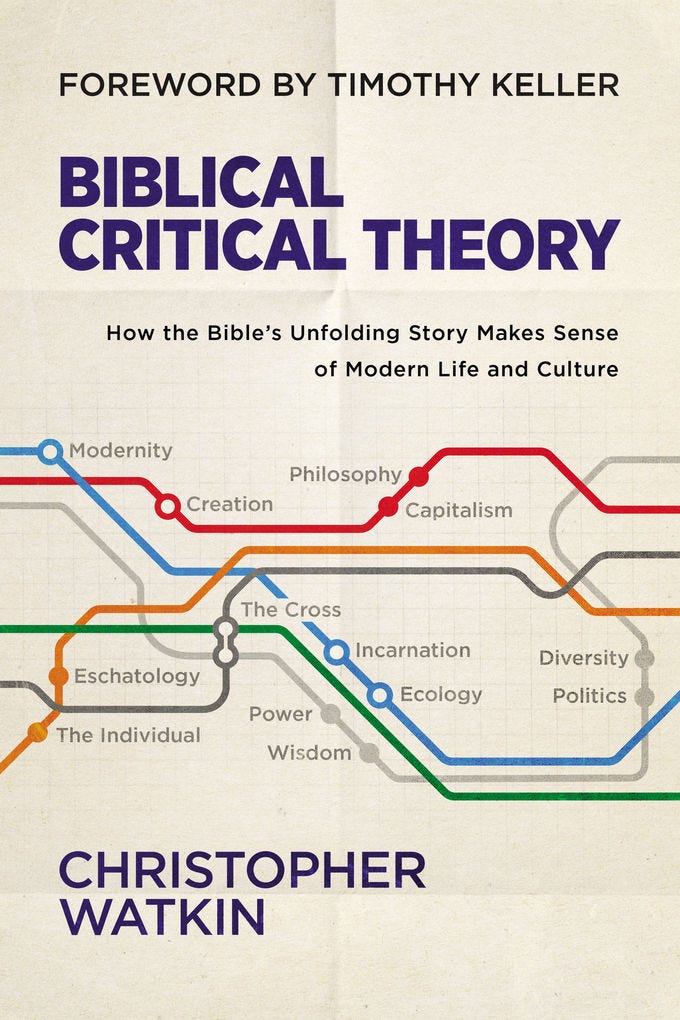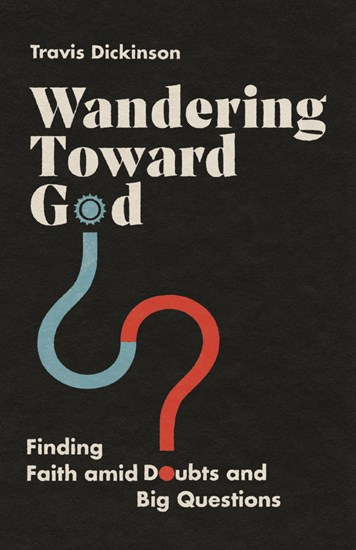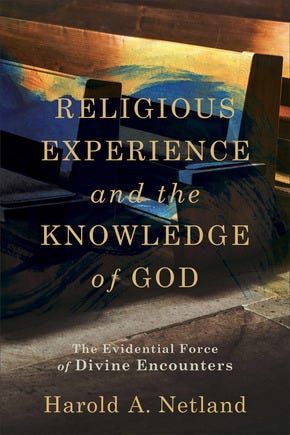If there is a moral landscape, and if at least some objective values and obligations hold independent of minds and speakers, then what best explains the reality of objective morality? What grounds it or makes it true? There are a few options: nothing, the universe, or God. Let’s consider each in turn.
If nothing grounds objective morality, then the objective moral order is just a brute fact. There is no explanation. Moral values and moral obligations just exist. Period. End of story. On a prominent version of this approach described in Erik Wielenberg’s Robust Ethics, moral values and obligations are abstract objects. Abstract objects are funny sorts of things. They exist just like more familiar concrete objects such as tables, chairs, and the like, but they do so outside space and time. To endorse belief in these abstract things is to endorse Platonism, in honor of Plato and his theory of Eternal Forms. Wielenberg defends what we might call a kind of Platonic Atheism. We could also call Wielenberg’s view a kind of Brute Fact Atheism since moral facts are brute or unexplained. According to Brute Fact or Platonic Atheism, then, there is the physical universe and an abstract realm of moral facts. This view is a philosophically viable option. As Wielenberg points out, explanations must stop somewhere, so why not with brute moral facts?
For at least four reasons, I don’t think that Brute Fact Atheism is the best explanation for objective morality. First, it seems utterly mysterious how properties in the abstract realm—for example, being good, being evil, being right, being wrong—hook up to various things and actions in the physical world. Why is it that my childhood act of stealing office supplies hooks up with the abstract property being wrong instead of being right? The answer, at the end of the day, is that it just does. Period. But this makes Brute Fact Atheism less attractive than the alternatives, for now the amount of brute facts needed to make the theory work has multiplied. Not only does it offer no explanation for the objective moral order; it also offers no explanation for how the moral and natural orders connect.
Second, Brute Fact Atheism can’t explain the authority or obligatoriness of moral duties. Why is it that we have an obligation to be honest? What explains this “oughtness”? Obligations and duties attach, it seems, to persons, not things. I’m not obligated to the chair I’m currently sitting on. I don’t owe it anything. Suppose I’m thinking about jumping off a roof for fun and, in my infinite wisdom, consider landing on a chair to soften the impact. Suppose too that if I jump, I’ll likely break the chair (and suppose I see this likelihood). As I consider this (foolish) action, an action I regularly contemplated as a kid, we might ask: Would I owe it to the chair to refrain from jumping? No. I’m not obligated to things. I am, on the other hand, obligated to people. I’m obligated to myself to not do stupid and unsafe things like jumping off roofs. And I’m obligated—in this case my wife and kids—to not put them in a position of needing to care for me when that leg breaks. Obligations naturally attach to persons, not things. In this way, theism—belief in a personal being worthy of worship—better accommodates the obligatoriness of moral duties by locating a proper ultimate source of moral authority.
Third, Brute Fact Atheism cannot account for the guilt we feel when we do wrong. Suppose I had a magical ring that made me invisible. Why be moral? (Plato famously presses this question in the Republic, and Tolkien playfully presses this idea in his Middle Earth novels.) If I cheated, lied, even raped and murdered, no one would know it was me. Yet I’d still feel guilty. I’ll bet you would too. (Don’t take my word for it; imagine yourself in this scenario. What do you find?) If there is a moral law but no moral lawgiver, then why do I have this sense of guilt when I do wrong—even if no one can see what I do? This need to rectify our moral failures is best explained if there are both a moral law and a moral lawgiver.
Finally, Brute Fact Atheism cannot account for why we have mental capacities that track moral truths. If the grand, naturalistic, evolutionary story explains why we have the cognitive capacities that we have, then we have no good reason to trust what our mental lives tell us. After all, evolution selects traits for survival, not truth. Thus, we have no reason to think that our cognitive capacities are aimed at truth, and we have no reason to think that our moral beliefs track truth. In other words, the fact that we do have moral knowledge is hard to explain given Brute Fact Atheism. On the other hand, if God exists, we have good reasons to think that our cognitive faculties are in fact reliable for tracking moral truths; arguably, God wants us to know moral truths, and thus he ensured (through either natural or supernatural processes) that our cognitive faculties develop such that they are capable of tracking moral truths.
I conclude that Brute Fact Atheism doesn’t best explain objective morality.
— Paul M. Gould is an Associate Professor of Philosophy of Religion and Director of the M.A. Philosophy of Religion program at Palm Beach Atlantic University. He is the author or editor of ten scholarly and popular-level books including Cultural Apologetics, Philosophy: A Christian Introduction, and The Story of the Cosmos. He has been a visiting scholar at Trinity Evangelical Divinity School’s Henry Center, working on the intersection of science and faith, and is the founder and president of the Two Tasks Institute. You can find out more about Dr. Gould and his work at Paul Gould.com and the Two Tasks Institute. He is married to Ethel and has four children.
---
Taken from Paul M. Gould, A Good and True Story: Eleven Clues to Understanding Our Universe and Your Place in It (Brazos Press, a division of Baker Publishing Group, 2022). Used by permission.
“I am really excited about A Good and True Story. It draws the reader in as if it were a novel. It is accessible, conversational, and full of stories and illustrations. Moreover, the amount of research and breadth of topics covered are impressive. While this book will make apologetics accessible to a broad Christian audience, its main purpose is achieved with excellence: to have an honest, thoughtful conversation with an unbeliever so he or she will have to consider the credentials of Christianity. This is now the best book to give to an unbelieving friend or relative. I loved reading this book, and so will you.”
— J. P. Moreland, distinguished professor of philosophy, Talbot School of Theology, Biola University; author of A Simple Guide to Experience Miracles
Find A Good and True Story at Amazon, Baker, and other major booksellers.
Image by Mike Braun from Pixabay
Biblical Critical Theory
How the Bible's Unfolding Story Makes Sense of Modern Life and Culture
In Biblical Critical Theory, Christopher Watkin shows how the Bible and its unfolding story help us make sense of modern life and culture.
Biblical Critical Theory exposes and evaluates the often-hidden assumptions and concepts that shape late-modern society, examining them through the lens of the biblical story running from Genesis to Revelation, and asking urgent questions like:
How does the Bible's storyline help us understand our society, our culture, and ourselves?
How do specific doctrines help us engage thoughtfully in the philosophical, political, and social questions of our day?
How can we analyze and critique culture and its alternative critical theories through Scripture?
Informed by the biblical-theological structure of Saint Augustine's magisterial work The City of God (and with extensive diagrams and practical tools), Biblical Critical Theory shows how the patterns of the Bible's storyline can provide incisive, fresh, and nuanced ways of intervening in today's debates on everything from science, the arts, and politics to dignity, multiculturalism, and equality. You'll learn the moves to make and the tools to use in analyzing and engaging with all sorts of cultural artifacts and events in a way that is both biblically faithful and culturally relevant.
“A brilliant and unique book . . . It is the most biblical, up-to-date, and comprehensive analysis of contemporary Western culture that I know of.”
—Joshua Chatraw, Center for Public Christianity
“This is a magnificent achievement. It is a must-read . . . Here is a total defense and commendation of Christianity like no other. Buy it. Read it. Ponder it. Pass it on.”
—John Dickson, Jean Kvamme Distinguished Professor of Biblical Evangelism and Distinguished Scholar in Public Christianity, Wheaton College
See our Worldview Bulletin excerpt from Biblical Critical Theory here.
Find Biblical Critical Theory at Amazon, Zondervan, and other major booksellers.
Wandering Toward God
Finding Faith amid Doubts and Big Questions
Is it wrong to doubt? Many Christians assume that doubt is faith’s opposite and that wandering among the hard questions of faith will lead us further and further away from God. True believers, the assumption goes, never waver in their confidence in the fundamental truths of the Christian faith.
Professor and philosopher Travis Dickinson disagrees. Instead, he says, our doubts and hard questions about the faith are actually an important way we can express our commitment and love to God. Doubt isn’t our destination but it’s an important step on the way. It’s possible to wander toward God as we ask our questions honestly, in faith and trust. As we do, we'll discover the truth, goodness, and beauty of God waiting for us.
“For a long time, we have needed an informed, fresh new guide in navigating through stormy waters of doubt. Careful to distinguish doubt from unbelief and offering an extremely helpful definition of faith (ventured trust), Dickinson’s book has it all. It begins with chapters that clarify doubt, faith, and related notions, along with locating the place of doubt in the process of spiritual growth. It moves on to discuss strategies for dealing with doubt, and it provides accessible answers to specific topics often involved in doubt. A truly wonderful book.”
— J. P. Moreland, Distinguished Professor of philosophy at Talbot School of Theology, Biola University, and author of A Simple Guide to Experience Miracles
See our Worldview Bulletin excerpt from Wandering Toward God here.
Find Wandering Toward God: Finding Faith amid Doubts and Big Questions at Amazon, InterVarsity Press, and other major booksellers.
Religious Experience and the Knowledge of God
The Evidential Force of Divine Encounters
For many Christians, personal experiences of God provide an important ground or justification for accepting the truth of the gospel. But we are sometimes mistaken about our experiences, and followers of other religions also provide impressive testimonies to support their religious beliefs.
Religious Experience and the Knowledge of God offers an introduction to the complex topic of religious experience and its viability as support for Christian belief, lending credibility to the Christian claim that experiences support our beliefs and actions. Harold Netland explores from a philosophical and theological perspective the viability of divine encounters as support for belief in God, arguing that some religious experiences can be accepted as genuine experiences of God and can provide evidence for Christian beliefs. The book also draws out the implications of religious experience for Christian witness, missiology, and apologetics in today’s globalizing and religiously diverse world.
“In Religious Experience and the Knowledge of God, Netland provides a thorough and illuminating account of how religious experience can function as an important testimony for God. His reasoning is careful, and he deals thoughtfully with various objections along the way, alert not to overstate the degree of certainty afforded by experience or to isolate religious experience from other sources of the knowledge of God. The book is conversant with the best of recent philosophical literature while also including important historic testimonies like those of Jonathan Edwards and John Wesley. This is a robust, balanced, and compelling treatment of an important topic.”
— Gavin Ortlund, author of Why God Makes Sense in a World That Doesn't
See our interview with Harold Netland on religious experience here.
Find Religious Experience and the Knowledge of God at Amazon, Baker, and other major booksellers.
*The posts above are sponsored.
Advertise in The Worldview Bulletin
Do you have a book, course, conference, or product you’d like to promote to 5,400 Worldview Bulletin readers? Click here to learn how. We’re currently booking for December and January.
Subscribe to or Support The Worldview Bulletin
Your support makes The Worldview Bulletin possible! We couldn’t do this without the support of you, our readers. We would be grateful for your help in any of the following ways:
Subscribe to our monthly newsletter and receive exclusive content from our team of world-class scholars and access to our full archive of scores of articles that provide a master class in Christian apologetics. The Worldview Bulletin will inform, equip, and inspire you! You can also give a gift subscription to a family member or friend who would benefit, or subscribe a group of three or more and save 20%.
Make a one-time or recurring donation.
Become a Patron and receive signed books from our team members.
“The Worldview Bulletin shines a brilliant light of truth in a darkening world. These authors, who are experts in their field, consistently provide logical, rational, moral and most importantly biblical answers, in response to the deceitful narratives we are bombarded with daily. I have found it a great source of enlightenment, comfort, and inspiration.”
— B. Shadbolt, Subscriber, New South Wales, Australia
“The Worldview Bulletin is a must-have resource for everyone who’s committed to spreading and defending the faith. It’s timely, always relevant, frequently eye-opening, and it never fails to encourage, inspire, and equip.”
— Lee Strobel, New York Times bestselling author of more than forty books and founding director of the Lee Strobel Center for Evangelism and Applied Apologetics







Solid post! Very well said.
Thank you. Excellent observations.